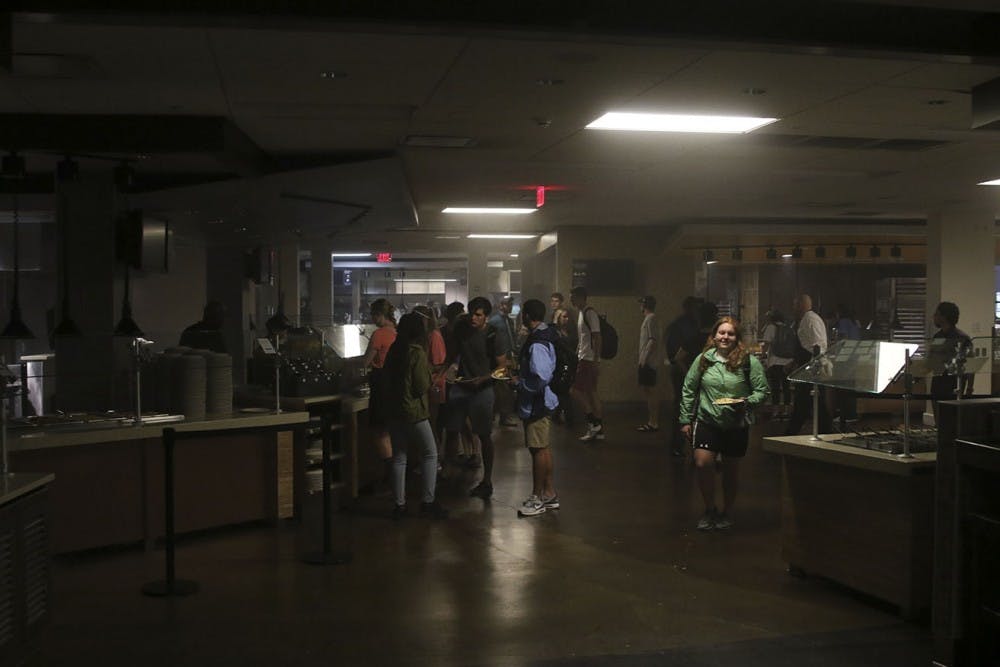North Campus buildings lost power in the midst of a thunderstorm Monday morning. While power was restored relatively quickly, there is still no information on the cause of the outage.
"I didn't feel informed. I was in class and the light went out, and I saw there was a light on in the hallway so it felt good that I knew there was some emergency lighting available but a lot of the floor I was on was not lit," said Danielle Weber, a first-year PhD student who was in Davie Hall when the power went out.
"We went to the secretary and they didn't really know what was going on, so I really wish that someone would have stopped by and told us what was happening."
No Alert Carolina messages were sent out about the power outage.
In January, another power outage occurred after a facilities worker was injured in an arc fire incident in Dey Hall. Power went out in some Central and North Campus buildings, including many dorms.
Students living in the residence halls affected by the power outage were not permitted to sleep in their dorms that night and instead were instructed to find somewhere else to stay or to sleep in the basement of Cobb. Power was restored later that evening and students were able to return to their dorms.
Associate Director of Housing and Residential Education Rick Bradley said during the outage, there was only emergency lighting in the basement of Cobb, which influenced their decision to bunk students there.
"Since the outage was expected to be 24 hours or so, initially (bunking students in Cobb basement) was the assumption," he said. "Each community has a response for what they would do with residents."
In order to inform students on the latest updates when emergencies occur on campus, Residence Hall Association President Taylor Bates said the RHA turns to social media to reinforce Alert Carolina messages and echo the official news sources.



